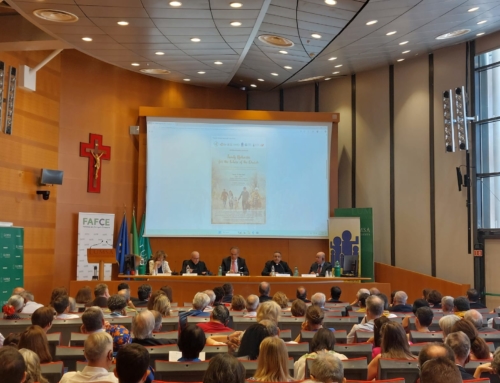Brussels, 29 January 2024
On 1 January 2024, Belgium assumed the Presidency of the Council of the European Union. This is the 13th time Belgium has held the EU Presidency, the last time being in 2010. It takes over from Spain will be succeeded by Hungary which will take up the presidency on 1 July 2024. As the current institutional cycle comes to an end (the European elections will take place on 9 June), the Presidency will support the adoption of the Strategic Agenda 2024-2029 and prepare the discussions on the future of the European Union.
Belgium’s six priorities for the Presidency are to defend rule of law, democracy and unity; strengthening competitiveness; pursuing a green and just transition; reinforcing the social and health agenda; protecting people and borders; and promoting a global Europe.
As part of General Affairs, Belgium will initiate work on the Defence of Democracy package and follow-up on the proposal for an agreement to establish an interinstitutional ethics body. This could limit the space for civil society if it includes a disproportionate requirement of transparency that, for example, leads to public officials being discouraged from meeting with civil society.
Under Foreign Affairs, Belgium state that they will focus on health as a right “including sexual and reproductive health and rights” which – FAFCE underlines – is incompatible with the international human right to life.
Belgium also wants to assess the continued relevance of the NextGenerationEU (NGEU) as part of their work on Economic and Financial Affairs. FAFCE also notes that this financing instrument can negatively impact freedom of expression, marriage and family as it allegedly aims to protect entitlements of the LGBTIQ+ community and strengthen EU law to cover all forms of hate speech and hate crime.
Under Justice and Home Affairs, the Presidency will work to finalise the directive on combatting violence against women, a directive which advances gender as a social construct which could for example have implications for the definition of marriage. The Presidency will also take forward the initiative on the recognition of parenthood between Member States. This would negatively impact marriage, family and parental rights as the proposal could force Member States to recognize same-sex marriage and parenthood established through surrogacy in cross-border situations.
In the field of Health, the Belgian Presidency will complete any remaining work on the regulation on Substance of Human Origin (SOHO). FAFCE notes, that some aspects of this regulation are incompatible with the inherent human dignity, since the embryos and foetuses constitute human life: including them in the list of substances of human origin (so-called SOHOs) and as “unborn offspring” not only reduces them to common cells, but also opens dangerous doors to their use for research and industrial purposes, which goes against the respect of dignity of human life.
FAFCE will follow with attention the the Belgian Presidency of the Council of the European Union and notes that it, as the prioritiesinclude several aspects that could negatively impact human dignity and family life.
An ecumenical delegation representing the Commission of the Bishops’ Conferences of the European Union (COMECE) and the Conference of European Churches (CEC) also discussed the priorities of the Belgian EU Presidency and published a shared contribution.







